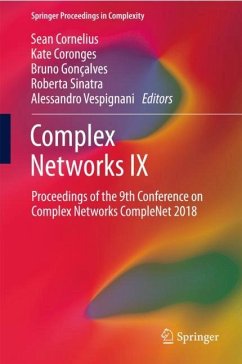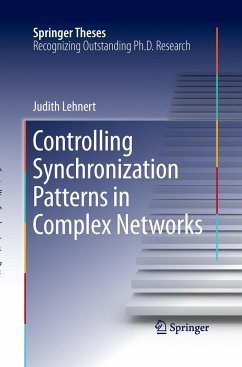
Complex and Adaptive Dynamical Systems
A Comprehensive Introduction
Versandkostenfrei!
Versandfertig in 6-10 Tagen
61,99 €
inkl. MwSt.
Weitere Ausgaben:

PAYBACK Punkte
31 °P sammeln!
This textbook offers a comprehensive introduction to the concepts underpinning our modern understanding of complex and emergent behavior. Mathematical methods necessary for the discussion are introduced and explained on the run. All derivations are presented step-by-step. This new fifth edition has been fully revised and includes a new chapter, a range of new sections, figures and exercises. The Solution chapter has been reorganized for clarity.The core aspects of modern complex system sciences are presented in the first chapters, covering the foundations of network- and dynamical system theor...
This textbook offers a comprehensive introduction to the concepts underpinning our modern understanding of complex and emergent behavior. Mathematical methods necessary for the discussion are introduced and explained on the run. All derivations are presented step-by-step. This new fifth edition has been fully revised and includes a new chapter, a range of new sections, figures and exercises. The Solution chapter has been reorganized for clarity.
The core aspects of modern complex system sciences are presented in the first chapters, covering the foundations of network- and dynamical system theory, with a particular focus on scale-free networks and tipping phenomena. The notion of deterministic chaos is treated together with bifurcation theory and the intricacies of time delays. Modern information theoretical principles are discussed in further chapters, together with the notion of self-organized criticality, synchronization phenomena, and a game-theoretical treatment ofthe tragedy of the commons. The dynamical systems view of modern machine learning is presented in a new chapter.
Chapters include exercises and suggestions for further reading. The textbook is suitable for graduate and advanced undergraduate students. The prerequisites are the basic mathematical tools of courses in natural sciences, computer science or engineering.
The core aspects of modern complex system sciences are presented in the first chapters, covering the foundations of network- and dynamical system theory, with a particular focus on scale-free networks and tipping phenomena. The notion of deterministic chaos is treated together with bifurcation theory and the intricacies of time delays. Modern information theoretical principles are discussed in further chapters, together with the notion of self-organized criticality, synchronization phenomena, and a game-theoretical treatment ofthe tragedy of the commons. The dynamical systems view of modern machine learning is presented in a new chapter.
Chapters include exercises and suggestions for further reading. The textbook is suitable for graduate and advanced undergraduate students. The prerequisites are the basic mathematical tools of courses in natural sciences, computer science or engineering.














